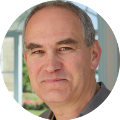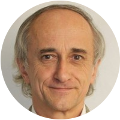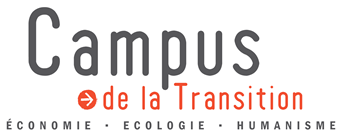The genesis of the Handbook
The ecological and social transition is an unprecedented challenge for current and future generations. Preserving our planet and living things in all their forms imposes a new paradigm: a radically different way of thinking about the world and acting accordingly.
However, during the year 2019, several initiatives highlighted the inadequacy of the higher education approach to teaching on ecological and social transition matters. By signing the petition proposed by The Shift Project, civil society expressed this conviction. For their part, many students joined the Manifesto for an ecological awakening.
In the summer of 2019, the Ministry of Higher Education, Research and Innovation (MESRI) requested the Campus de la Transition to produce a white paper on transition training in higher education.
Immediately, a group of more than 70 teacher-researchers and students from all disciplines, as well as experts and business players, were formed for the first time on this topic, ready to take up this challenge under the leadership of the Campus de la Transition. The “FORTES” collective was born to promote “Training for Ecological and Social Transition in Higher Education”.
The members of the collective come from a wide variety of disciplinary fields (environment, health, life sciences, biological, physics, economy, law, management, philosophy, sociology, political science).
Indeed, the “Great Transition” does not simply concern the environment or the economy, as it is customary to think, but it addresses the very heart of our representations, and therefore all fields of knowledge.
In one year of collaborative work, 13 working groups have developed the flesh of a common frame to move forward. Together, they gave birth to the Great Transition Handbook.
The coordinators of the project
Bringing together a group of more than 70 teacher-researchers, experts and students, four leading academics coordinated the collaborative development of the Great Transition Handbook.

Cécile Renouard is the president and co-founder of the Campus de la Transition.
Cécile is also Professor of Philosophy at the Ecole des Mines de Paris, ESSEC Business School and Facultés Loyola Paris. She is the Scientific Director of the research program “CODEV – Enterprise and Development” at ESSEC, where she studies the implementation by private actors of their ethical and political responsibilities. A former director of the Agence Française de Développement from 2014 to 2017, she is a member of the Scientific Council of the Fondation pour la Nature et pour l’Homme, a member of Michelin’s External Stakeholder Council and of the EDF Group’s Stakeholder Council
She is the author of numerous books: La Responsabilité éthique des multinationales (PUF, 2007), Un Monde possible (Seuil, 2008), 20 Propositions pour réformer le capitalisme (directed with Gaël Giraud, Flammarion, 2009, 2nd edition 2012), Michael Walzer ou l’art libéral du civisme (Temps Présent, 2010), Ethique et entreprise (Ed. de l’Atelier, 2013, pocket 2015), L’entreprise au défi du climat (with Frédéric Baule and Xavier Becquey, Ed. de l’Atelier, 2015), Le Facteur 12. Pourquoi il faut plafonner les revenus (with Gaël Giraud, Carnets Nord, 2012, 2017), L’entreprise comme commun (with Swann Bommier, Editions Charles Léopold Mayer, 2018).

Rémi Beau is a research fellow in philosophy at the CNRS (IEES-Paris, Sorbonne University).
Specialist in environmental philosophy, Rémi works on the notions of ecocentrism, moral perfectionism and the links between environmental ethics and political ecology. He is particularly interested in our relationship with nature, which he approaches from the perspective of an ordinary way of thinking.
In 2017 he will publish Éthique de la nature ordinaire. Recherches philosophiques dans les champs, les friches et les jardins (Sorbonne Publishing, coll. “Philosophies pratiques”) and co-edited in 2018, with Catherine Larrère, the collective work Penser l’Anthropocène (Sciences Po Press).

Christophe Goupil is a professor at the University of Paris.
Physicist by training and co-founder of the Interdisciplinary Laboratory for Tomorrow’s Energies (LIED), Christophe is conducting research focused on issues of thermodynamic energy conversion. His research and teaching activities are at the confluence of the communities of biologists, physicians and economists.

Christian Koenig joined the Campus de la Transition after a long career at ESSEC Business School, where he was professor, director of the “grande école” program, founder and director of ESSEC in Singapore, director of the BBA program and finally director of international affairs. His research focused in particular on inter-company cooperation.
He was also Executive Director of the Council on Business and Society, an international alliance of schools promoting responsible management, and is General Secretary of the Club France Initiative.
Holder of a Master’s degree from Harvard University, Associate Professor in the Strategy and Management Department at ESSEC (in 1997).
Within the Campus de la Transition, Christian Koenig contributes to the structuring of academic training and partnerships with higher education institutions.
